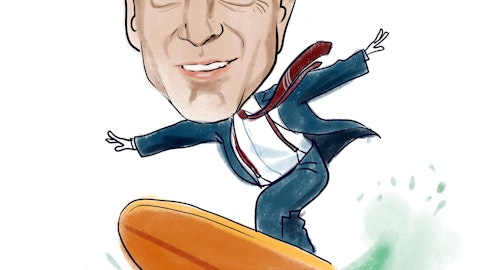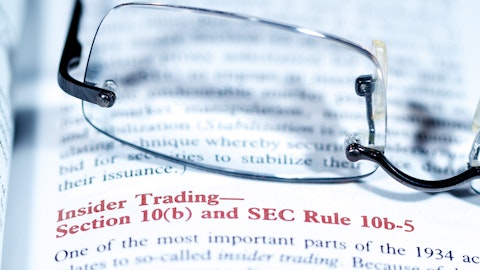Third Point is a hedge fund founded by Daniel Loeb in 1995. The fund delivered negative returns of about 16% in the first quarter. On April 16, Daniel Loeb said in a letter to investors (download a copy here) that Sony Corporation (NYSE:SNE) stock struggled in the first quarter. The stock has been declining due to the COVID-19 outbreak. Sony has a solid financial position as the company is in a position to monetize assets amounting to 20% of its market cap. In 2020, it is expected that the company’s cyclical segments like Electronics and Semiconductors will face headwinds. In contrast, Sony’s Gaming business is experiencing growth patterns as more people globally are spending time home due to the coronavirus lockdown. Here is what Loeb said:
“While not immune from the current economic environment, Sony is in a strong financial position to weather the storm with a net cash balance sheet and large equity investments that could be easily monetized (~20% of market cap). Although some of Sony’s more cyclical businesses will likely face headwinds in 2020 (most notably Electronics and Semiconductors), Sony’s Gaming business is currently experiencing accelerating growth trends driven by the “stay at home” economy. Sony remains one of the cheapest large cap tech stocks in the world with market-leading positions in several growing end markets, trading at <6x LTM EBITDA and ~7x our estimate of 2020 EBITDA. Our view on intrinsic value of 11k yen per share is unchanged as few of Sony’s businesses are likely to feel longterm impacts from COVID-19. ”
Dan Loeb is bullish about Sony Corporation but hedge funds have been getting out of Sony since the end of June (see the chart here). The number of bullish hedge fund positions declined by about 25% since June.

Dan Loeb of Third Point
Daniel Loeb’s comments on IAA
Third Point’s fundamental and event portfolio fell by about 28%. A part of that decline was due to significant losses in IAA (NYSE:IAA). IAA was formed in June 2019, when it was spurned out of KAR Auction Services. IAA auctions damaged cars on behalf of insurance firms. The hedge fund views IAA investment as an opportunity to take benefit of the industry’s duopoly structure, ability to rise prices without losing demand, and higher returns. Here is what Loeb said:
“Another investment that was hard hit during the quarter is IAA, a company that auctions damaged vehicles on behalf of insurance companies. IAA was spun out of KAR Auction Services in June 2019. We like the industry’s duopoly structure, pricing power, and high returns and are also excited about the opportunity for IAA to invest in the business, drive growth, and improve margins as an independent company. Management recently disclosed a strong profit improvement plan which targets a 30% increase in EBITDA over the next three years, excluding contributions from core business growth. As a result of COVID-19, traffic congestion, miles driven, and accident frequency are seeing dramatic one-off declines but we expect a recovery as the economy reopens and cheap gas and pent-up demand help get the consumer back on the road. The auto salvage industry has been resilient during past economic downturns and has grown revenue at a 10% CAGR over the last 20 years.”
Do you think it is still too early to buy IAA?
Disclosure: None. This article is originally published at Insider Monkey.




